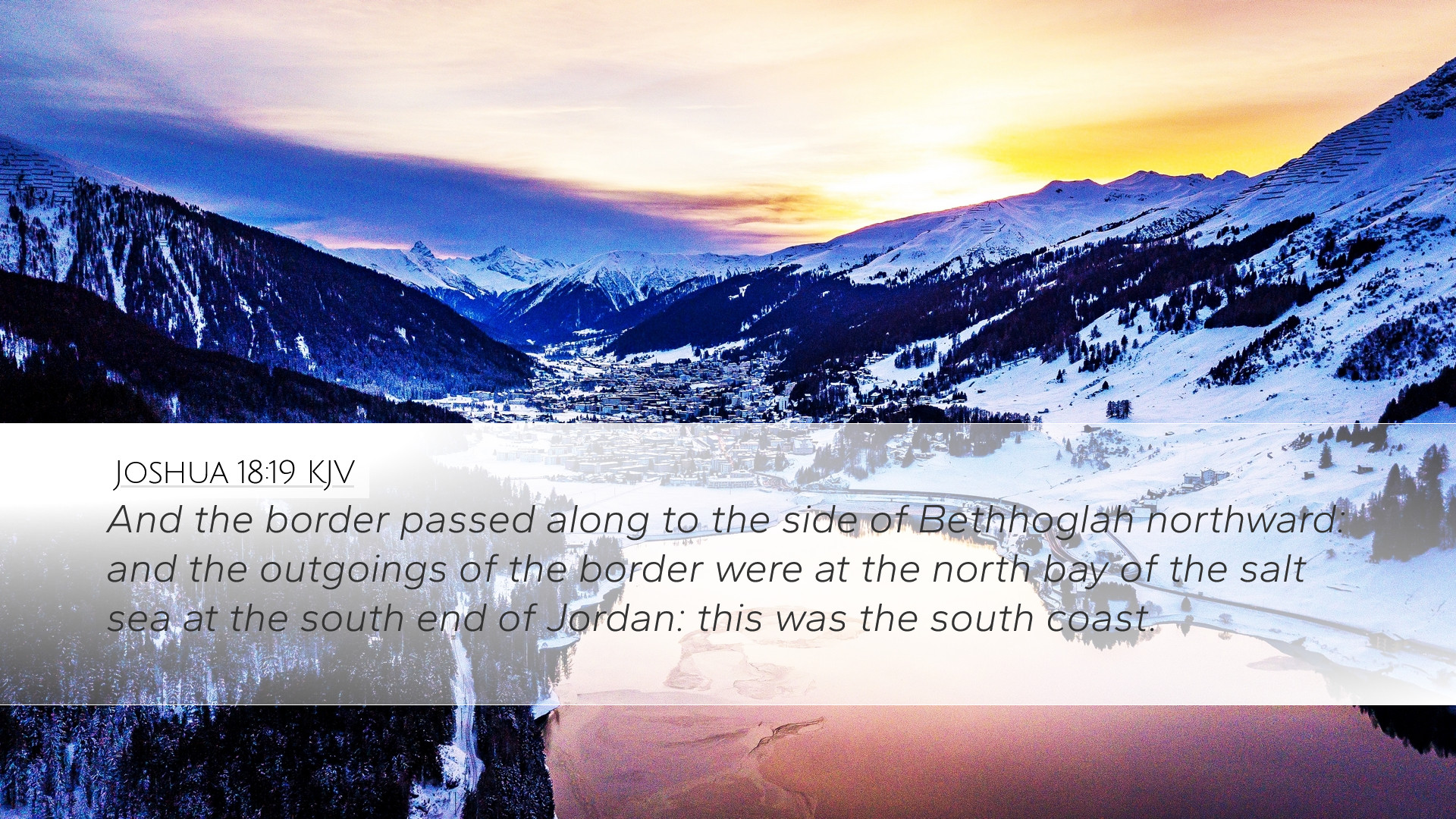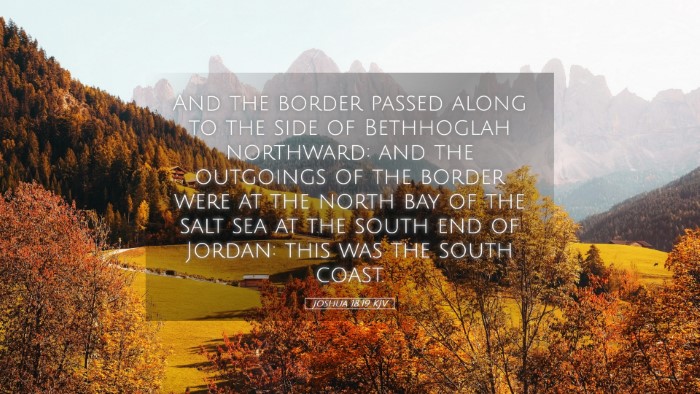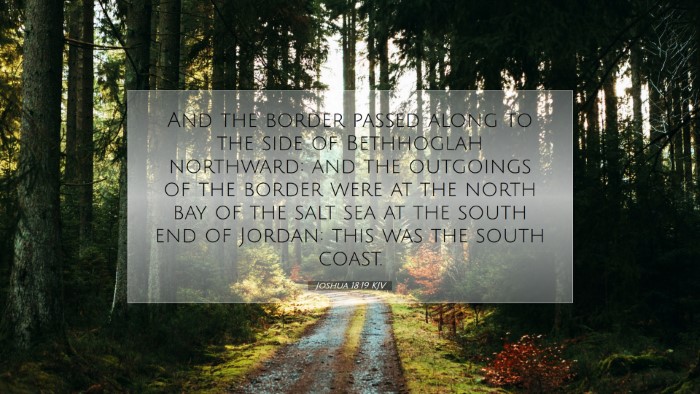Commentary on Joshua 18:19
In Joshua 18:19, we encounter a significant milestone in the Israelite settlement of the Promised Land, specifically in the allotment of land to the tribes of Israel. This verse states:
"And the border went out toward the sea, and it ended at the river of Egypt, and the goings out of that border were at the sea: this shall be your south border."
This commentary seeks to draw upon insights from various public domain commentaries to unpack its theological implications, historical context, and practical applications.
Traditional Contextual Understanding
Textual Overview:
The context of Joshua 18:19 is within the broader narrative of the Israelite conquest and division of Canaan. Following the conquest under Joshua, the land was divided by lot among the tribes. Each tribe received elevations tailored to its size and needs, highlighting God’s providential allocation.
Insights from Matthew Henry
Matthew Henry's commentary draws attention to the methodical nature of the land distribution. He emphasizes:
- God's Sovereignty: The delineation of the borders reflects God's sovereign will. The Israelites were not merely conquering lands but receiving them as divinely ordained territories.
- Geographical Significance: The mention of the "river of Egypt" indicates both a natural landmark and a boundary of possession, underscoring the importance of geographical awareness in God’s covenant promises.
- Historical Reflection: The verse serves as a historical marker, chronicling the fulfillment of promises made to the patriarchs concerning the inheritance of land for their descendants.
Insights from Albert Barnes
Albert Barnes provides a more analytical view, focusing on:
- Tribal Allocation: He points out the logistic efforts made to ensure fair distribution amongst tribes, illustrating the importance of unity and equitable justice in Israel’s governance.
- Symbolism of Boundaries: The borders established signify not only physical land but also spiritual inheritance. They serve as a reminder of the covenant God had with Israel: obedience would bring blessings, while disobedience would lead to consequences.
Insights from Adam Clarke
Adam Clarke provides further depth through historical and cultural lenses:
- Cultural Context: Clarke contextualizes the geographical terms used, explaining that understanding these ancient boundaries is crucial for comprehending the full scope of Israel's inheritance.
- Theological Reflections: He emphasizes the theological implications of land allotment, suggesting that the land itself is a symbol of spiritual rest and peace provided by God to His people.
Theological Implications
In contemplating Joshua 18:19, we find profound theological implications:
- Divine Providence: The precise demarcation of boundaries illustrates God’s providential oversight in human affairs, affirming His intimate involvement in the lives of His chosen people.
- Rest and Inheritance: The land signifies God’s promise of rest, a central theme throughout the Scriptures. The Israelites’ possession of land symbolizes ultimate spiritual rest found in Christ (Hebrews 4:9-11).
- Covenant Faithfulness: The borders reflect God’s faithfulness to His covenant. He fulfills His promises through the establishment of tangible blessings for His people.
Practical Applications for Today
For pastors, theologians, and students, Joshua 18:19 provides rich practical applications:
- Understanding God’s Plan: Just as God had a specific plan for the Israelites, believers today can trust that God has a unique calling and purpose for their lives.
- Importance of Community: The communal allocation of the land serves as a reminder of the importance of the church community in stewarding God’s gifts collectively.
- Focus on Promised Rest: The assurance of spiritual rest encourages believers to cast their anxieties upon God, knowing that Jesus offers true peace, symbolized by the land of promise.
Conclusion
In summary, the verse Joshua 18:19 encapsulates critical themes of divine sovereignty, covenant faithfulness, and the call to inheritance, drawing us into deeper understanding of God’s dealings with His people. This commentary, synthesizing insights from several great theologians, aims to serve pastors, students, theologians, and scholars with rich, meaningful reflections that resonate through time. As we reflect on this verse, may we be encouraged in our journeys of faith, recognizing the enduring promise of God’s presence and provision in our lives.


